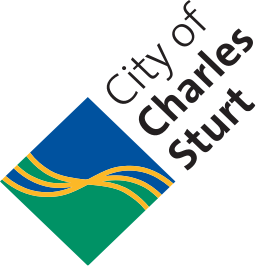Attributable to Paul Sutton, CEO
-
I note from the corporate services agenda from Monday night that RFID tags will be fitted to bins over the next couple of years.
It is a possible future option the City of Charles Sturt is considering we have not yet considered this in any detail. -
What is the reason for having the tags?
They could help us keep more accurate records of how many bins we have actually in service at any one time, and where they are located (i.e. at which address). This information helps us ensure we (and our ratepayers) are only paying for the bin collections we require, reducing the risk of being overcharged by contractors (when we pay monthly bills to our waste/recycling collection contractors they are based on the number of “bin lifts”). It would also help us identify (for example) when bins are missed during the collection process (or when whole streets are missed, which happens from time to time). And help us find lost or stolen bins. -
Will the data collected be able to, in any way, indicate what kind of waste people are putting in bins?
No – RFID tags can’t weigh or look at/ sense anything. The tags just hold digital information of the bin serial number and the address to which that bin has been allocated. That digital information is scanned by the truck lifting arm during collection. It just tells the truck ‘it’s this bin, at this address’. That’s all. No weights. No assessment of whatever may have been in that bin.
It’s worth noting that some trucks have had cameras in their collection hoppers for many years already. Drivers have used these for years to help identify if (for example) there is gross contamination of a recycling bin (with rubbish).
Cameras are used as if the driver saw (for example) an engine block go in (rare but it has happened), they could stop and not compact the waste and get it removed before it did any damage to the truck. We don’t need RFID tags for this – this capacity has existed for many years. Perhaps with an RFID tag we might then write to the householder and request that they please don’t put engine blocks in the bin. We believe this type of use is fair enough, and is why this is a future option. -
Would residents potentially be penalised for going over a specified weight?
No, RFID tags cannot observe or record weights. We do not believe penalising residents is a way to provide services either, and always focus on education and awareness of any penalty. -
Would it allow, for instance, a reduced levy on residents who dispose of less waste, ie a user pays model?
No, an RFID tag cannot do that as it does not assess the waste inside the bin – it just identifies the bin by serial number and address.
One option for consideration, however, is whether we could offer some kind of reward/rebate for residents who recycle really well, to help encourage more recycling. One way of doing this may, for example, could allow residents to choose their bin sizes from a broader range of options than we currently have available. Our current service is a bit ‘one size fits all’ and we’re conscious that our households are definitely not ‘one size’. Some residents find our bins too big and bulky/heavy, others would like bigger recycling bins as an option. We would like to offer a greater range of choice but need more information and to engage with our community before we make these decisions. Our aim will be to discuss these options with our community over the next few months.
But to be clear: RFID tags are irrelevant to that question – we could do it with RFID tags, or without RFID tags. So these are separate issues. -
Is there any other data other than weight and bin lifts the council intends to collect?
Bin lift numbers are already collected by our contractor, but will be more accurate (and transparent) with RFID tags in place. Having a more accurate base of bin data will help us manage the service more efficiently on behalf of our residents (i.e. avoid being overcharged by our contractors). It would also help us answer questions from residents more quickly (i.e. if they ring up to let us know their bin has been missed – we could then see quite easily if the whole street has been missed etc. Also if they ring up and say their bin is missing, we could see if that bin has been presented for collection elsewhere and arrange to retrieve it.)
| Further Information | Kristie Johnson 08 8408 1185 Email: kjohnson@charlessturt.sa.gov.au |
Provide feedback for this page
